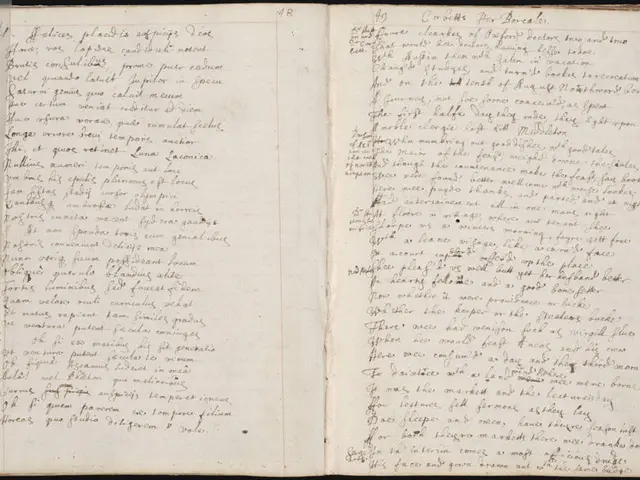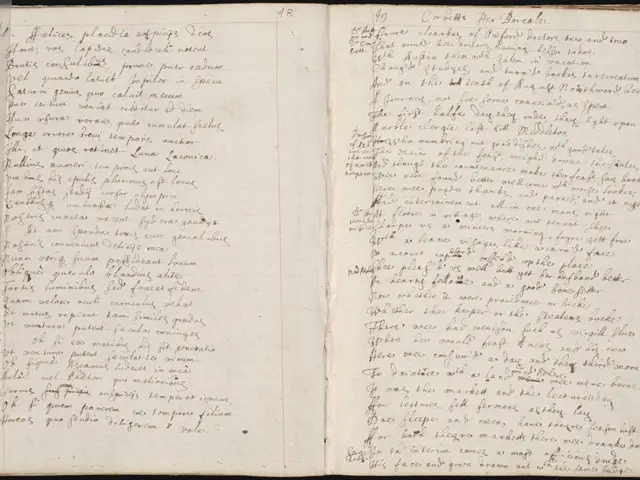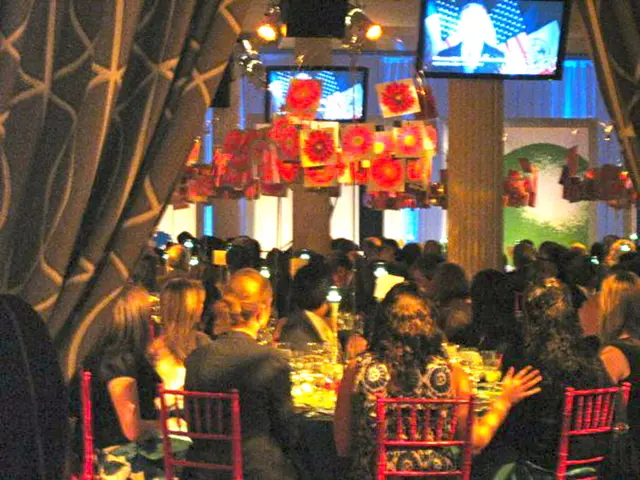"In the year 2025, lacking knowledge about Worth, Poiret, Saint Laurent, Alaïa, or Margiela is acceptable. In fact, you might even boast about your unfamiliarity with these influential fashion designers."
In the heart of Paris, at 50, rue de Varenne, a packed hall of the Italian Cultural Institute opened its doors to 250 guests on Wednesday, May 21, for the French launch of the book "La Vie des formes." Signed by fashion designer Alessandro Michele, 52, and philosopher Emanuele Coccia, 49, the book explores the intersection of the two disciplines, traditionally considered worlds apart.
In his introduction, the director of the Institute highlighted the unique union taking place in the grand Hôtel de Gallifet, reminding the audience of its historical significance – a place where Napoleon and Madame de Staël once met.
The book tackles a subject relatively unexplored in philosophy – fashion. Emanuele Coccia, in an interview prior to the event, attributed this gap to tradition and posture, deeply ingrained in both fields. He noted that the history of fashion is rarely taught in schools or universities, resulting in a lack of recognition and understanding of fashion's impact.
Coccia further explained that while sociology often considers clothing as a marker of generational, social, status, or gender, fashion has not mirrored this interest in the realm of ideas or culture. He argued that "if you know nothing about Picasso, you're a hick," yet ignorance about fashion greats like Gabrielle Chanel, Charles Frederick Worth, and Yves Saint Laurent is generally accepted.
The discussions at the Italian Cultural Institute confirmed a growing interest in bridging the gap between fashion and philosophy. Recent works, such as Kate Moran's "A Philosopher Looks at Clothes" and Vivienne Westwood's approach to fashion, reflect this budding discourse. Future philosophical inquiries may delve into subjects like aesthetics and identity, cultural and historical context, and minimalism in fashion.
[Context: While fashion may not have been a central subject in traditional philosophy, it is increasingly being recognized as a significant area of philosophical inquiry. This recognition is evident in works like "A Philosopher Looks at Clothes" and philosophical approaches to fashion designers' work, such as Vivienne Westwood's, which contribute to bridging this gap. These works explore subjects like aesthetics and identity, cultural and historical context, and minimalism in fashion, contributing to a deeper understanding of fashion as a form of self-expression and culture.]
- The book "La Vie des formes," signed by fashion designer Alessandro Michele and philosopher Emanuele Coccia, raises intriguing questions about the intersection of fashion and philosophical thought, a relatively unexplored area that is gaining prominence, much like 'A Philosopher Looks at Clothes.'
- As the fashion and beauty industry intertwines more closely with lifestyle and entertainment, it becomes increasingly important to reevaluate and expand our understanding of these disciplines, a task that works like "La Vie des formes" and Vivienne Westwood's philosophical approach to fashion effectively contribute to, with subjects such as aesthetics, identity, and minimalism acting as key points of exploration.







